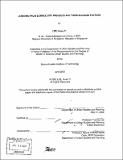Lessons from science city projects and their success factors
Author(s)
Lee, Huey Yi, 1974-
DownloadFull printable version (11.04Mb)
Other Contributors
Massachusetts Institute of Technology. Dept. of Urban Studies and Planning.
Advisor
Tunney Lee.
Terms of use
Metadata
Show full item recordAbstract
Globalization has drastically improved latecomer countries' access to advanced technologies. To the extent that technology upgrading is important for development, it provides a unique opportunity for latecomer countries to raise per capita income. One such way of upgrading the technological capabilities of a latecomer country/region is through the development of "technopoles" or Science Cities. These technopoles, if successfully developed, can help regions to achieve several objectives: (a) transfer of technology, (b) create local spin-off companies, and (c) gain competitive edge by embracing better technology and (d) increase productivity. Thus, in the last half-century, many governments invested heavily on the planning and development of such technopoles with the aim of making them the "innovation center" of science and technology for the region/country. However, the success rates of these planned technopoles differ. Some technopoles emerged as new "growth engines" but some became a burden to the government and a waste of scarce resources. If governments understood the critical ingredients for successful technopole development, they could better plan for them at the outset before they embark on such major economic and urban projects. This paper shows a framework of success factors that drove the transformation of Boston's Route 128 area from an industrial ruin into a world-class high-tech industrial cluster (or technopole) driven by knowledge-based asset (Chapter 2). When tested against three planned technopoles, namely Akademgorodok (Russia), Taedok Science Town (South Korea) and Tsukuba Science City (Japan), it showed that as more factors in the framework exist in these planned areas, the more vibrant the technopole e.g. more private companies within the community, more interaction and public-private partnerships, spin-off companies, etc (Chapter 3). Lessons are drawn from the planned technopoles case studies, which could serve as policy considerations for regional land use and economic planners. The framework is then applied to Singapore and recommendations are made on how Singapore can improve their economic policies to better realize its vision of a world-class science and technology hub (Chapter 4). Lastly, the entrepreneurial culture factor is discussed in greater detail in the Singapore context (Chapter 5). It examines the state of entrepreneurial culture in Singapore and whether she is truly lack of entrepreneurs.
Description
Thesis (S.M.)--Massachusetts Institute of Technology, Dept. of Urban Studies and Planning, 2002. Includes bibliographical references (p. 89-92).
Date issued
2002Department
Massachusetts Institute of Technology. Department of Urban Studies and PlanningPublisher
Massachusetts Institute of Technology
Keywords
Urban Studies and Planning.